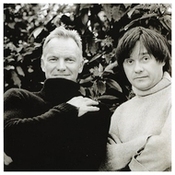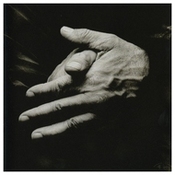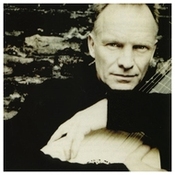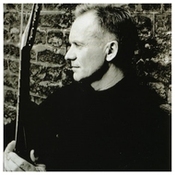
Pop singer sings Renaissance music: John Dowland doesn't need Sting's intercession. But it doesn't hurt either of them either.
No, no one sang along. Neither to John Dowland nor to Sting – although at least during Sting's few numbers, some fans in the Great Concert Hall respectfully dared to at least whisper the lyrics. The reactions were generally within bounds: polite cheers after each number, and finally, yes, everyone politely stood up. But the music-generated emotions didn't boil over. Perhaps because you simply have to listen better, or at least differently, to Dowland's songs.
Today, the singer is the most important thing, says Bosnian lute player Edin Karamazov, then comes the music, and finally the lyrics – exactly the opposite of how it was in 1600. Despite this, or perhaps precisely because of this, it was Karamazov's idea to put Sting on Dowland. The two worked on a CD for a year, the program of which they are now presenting live. Well, Dowland was used to heartbreak, one might quip. (His rejection at the English court left him deeply depressed for 18 years.) But while Sting's return to the Elizabethan era can be categorized as "crossover," the alarm bells can still be safely turned off. Because there's no sugary sauce poured over the original here: Sting simply sings Dowland—without crude reworkings spoiling the picture. His voice takes care of that, though it naturally lacks the otherworldly beauty of singers trained in the style of the era. That element is provided by the London group Stile Antico, which serves as an excellent background choir for some numbers, unfortunately kept in the background by the sound system.
Sting, on the other hand, accompanied by Karamazov and/or himself on the lute, attempts to give Dowland's songs a contemporary feel with his perfectly normal, occasionally raspy, voice. Where necessary, he reveals the rebelliousness that is suspended in many early music interpretations—for example, when he charges 'Can she excuse my Wrongs' with anger and bile. And a timeless hit like 'Come againe: Sweet love doth now envite' takes on an intensified erotic quality in his interpretation. But he never touches on truly gifted appropriation: his expressive framework remains too limited for that, his possibilities for variation remain too limited. Where, as in 'Fine Knacks for Ladies', it's all about peppy verve, one would have preferred to hear ''Stile Antico'' on its own—without the unnecessary soloist. Karamazov was not just necessary, but indispensable: always present and helpful, naturally leading the interspersed lute duets, he even turned Bach's Toccata and Fugue in D minor, BWV 565, into a piece of intimate virtuosity at the beginning - and incorporated a necessary retuning almost imperceptibly.
In between, there were gentle lessons in music history. The fact that Dowland finally received the coveted position in London was not mentioned: This probably didn't fit the image of the melancholic "singer-songwriter" of yesteryear, who had to seek his fortune in Europe.
After the rhythmic and harmonic richness of Dowland's songs, Sting's encores ('Fields of Gold', among others) seemed less plain than simple, even a bit trite. Will there be a revival in the year 2400, when only early music freaks know both 'Message in a Bottle' and 'In Darkness Let Me Dwell'? If so, I'm guessing John Dowland.
(c) Die Presse by Walter Weidringer
Elizabethan music with Sting in Vienna...
Before the Police reunion, Sting is touring Europe with music by John Dowland (1563-1626) and stopped by the Vienna Konzerthaus.
The "New Wave" that Sting presented yesterday Saturday at the Vienna Konzerthaus is no longer brand new: The British pop star has dedicated himself to the music of the English lutenist John Dowland. And that music is almost half a millennium old. But what Sting, the Bosnian lutenist Edin Karamazov, and the London choir Stile Antico brought to the stage was as unusual as it was vibrant. Pop enthusiasm for early music in the sold-out concert hall.
Renaissance musician Dowland has been experiencing a renaissance himself with his lute songs for some time now. Sting has now released some of the Elizabethan musician's songs under the title "Songs from the Labyrinth" on Deutsche Grammophon. He is currently presenting them live in selected concert halls, likely introducing many of his fans to music from that era for the first time.
And at first, one is briefly surprised: Sting already seems to feel at home on the lute, but the singer's familiar throaty sound has disappeared behind the typical tones of an early music vocalist. The voice whose successful contortions have become his trademark in "The Police" and many solo hits sounds as straight as a bolt, albeit slightly breathless and severely overwhelmed in the lower register. Sting has not only taken lute lessons but also a few singing lessons in preparation. At first, both sides of the audience – early music fans and Sting fans – are not entirely happy with the result.
The longer the evening goes on, however, the more the acquired skills disappear – and the pop singer with the distinctive voice emerges. And this sign, presumably a sign of fatigue from the unfamiliar sounds—"I'm finished," Sting himself then said in German—made the evening all the better. Sting unabashedly portrayed Dowland as a forerunner of British pop, and that works much better with a pop voice than with a pop voice trying to sound like early music. The mannerisms gradually fall away, and beyond the mania for original sounds typical of early music, the strained backwardness, and the false joy in his own refined musical taste, Sting gives Dowland's music what it needs: faith in its power.
Thus, the old songs become increasingly fresh. And the audience also gets a good dose of history: John Dowland (1563-1626), a contemporary of Shakespeare and the best lute player in England at the time, as a Catholic, is unable to get a job with the Protestant Queen Elizabeth I. And in general, "it wasn't an easy time for musicians; there was no recording income," according to Sting, who was delighted by the many and loudly expressed sympathies from the audience – even when he sent Dowland on a narrative journey "here in Germany, too." This elicited more laughter than grief from the Viennese audience.
Thus, the audience became increasingly immersed in the world of the Elizabethan era, in war and lovesickness, melancholy and musical history, lute sounds and dim light. A song by Robert Johnson – not the blues musician, but Shakespeare's songwriter – is also heard.
When Sting, after the initial farewell with Dowland's 'In Darkness Let Me Dwell,' performs his first original song, 'Fields Of Gold,' in the encore, an enthusiastic murmur goes through the audience. It paid off, then: after Dowland with a Sting touch, Sting with a Dowland touch (that is, lute versions of his songs) comes at the end. 'Message in a Bottle' and Robert Johnson's 'Hellhound On My Trail' (yes, this time it was the blues singer) also delight, and at the very end, Sting emerges alone once more and sings—hand to heart—a farewell message in a bottle from the 16th century. And it brings to a close a thoroughly successful concert, which perhaps showed many for the first time that Renaissance music can embody pop emotions.
It's certainly a good time for Sting fans: just a few days after yesterday's concert, advance ticket sales for "The Police" at the Vienna Stadthalle on September 19 begin on March 19. On Sunday, March 11, the man who accompanied Sting on his journey to a solo career was also in attendance at the concert hall: jazz saxophonist Branford Marsalis, who had already given Sting's first solo album, "The Dream of the Blue Turtles," a substantial touch of sax.
(c) Kurier by Georg Leyrer
Sting: Following in the footsteps of a colleague...
The Brit performed at the Vienna Konzerthaus and tried to pour out his musical heart – no easy feat with the lute songs of John Dowland.
The situation for musicians has improved considerably over the centuries. While, say, a John Dowland wandered through Europe in the 17th century, sadly because he wasn't initially appointed Chief Lutenist to Her Majesty (as a Catholic, he may have been suspicious to the Protestant Elizabeth I), a descendant, say Sting (who now also plays a bit of lute), only has to worry about being honoured with a title of nobility by the Queen.
Economically speaking, a musician today is better off, freer. There's a copyright law that uses the few good songs one has written to cover fixed costs through royalties. And the best musical jobs are no longer tied to the Queen's favour. After all, there's now a broad concert audience outside of the palaces; Thanks to technological advances, you can also tune into live performances globally in the form of CDs, let's say under the title 'Songs From The Labyrinth'.
And: You'll be heard even if you go astray and try to evoke the art of an old colleague, John Dowland, who also once wrote hits. And no one takes offense at first sending your accompanist out to set the mood in the concert hall with the lute for quite a while – well, it's interesting, after all: Edin Karamazov is a powerful virtuoso who, while very moved by his own playing, isn't afraid to lend the emphasis a somewhat tinny sound when it comes to celebrating Bach. But it has charm. And then it passes anyway, and is quickly forgotten in light of the sight – a pop star as a nervous early music interpreter sitting in front of sheet music and then boldly launching into the lyrical smash hit 'Flow My Tears'. One is in the midst of consuming a dilemma that arises when Sting raises his distinctive nasal voice in this repertoire.
Finally, he doesn't try to make Dowland into a Sting song with his abilities, he wants to do justice to the original and has evidently studied diligently at the Schola Cantorum in Basel. But even though it doesn't sound as laborious as on the CD, the impression remains that the vocal studies weren't fully completed.
Overwhelming in the low notes, a generally strangely pretentious delivery, a somewhat strained, hoarse spelling of the lute songs. The more cheerful sections were better; he was sympathetic when reading from Dowland's letters, and yes - he has fifteen magical seconds in 'In Darkness Let Me Dwell'. Perhaps the tour came too soon. The enthusiasm was only great when he (on 19 September with Police in the Stadthalle) delicately translated his songs into Dowland lute form.
(c) Der Standard





